This article is about 5G
Top Ways that 5G is Changing the Sports Industry
By NIIT Editorial
Published on 04/01/2021
6 minutes
By 2035, 5G is expected to create $13.2 trillion worth of economic impact on the global GDP. In course to do this, it will have to accomplish some monumental feats and change the face of industries, one believes. The global sports industry is handsomely valued at $471 billion. Surely en route to world domination, 5G will touch the same from many directions. Let us explore some of the ways that could transpire.
Streaming
5G download speeds make up for a strong showing against 4G frequencies. Whereas 4G levels off at a peak download speed of 100 Mbps 5G is expected to go as high as 10 Gbps. Such a mountainous rise in frequencies opens up the possibility to pack more pixels in a single frame, upping the viewing quality for videos. Considering all 5G transmission will be wireless, that would mean customers shunning broadband connections and doing away with the tediousness of installing such bundled devices at home, possibly forever.
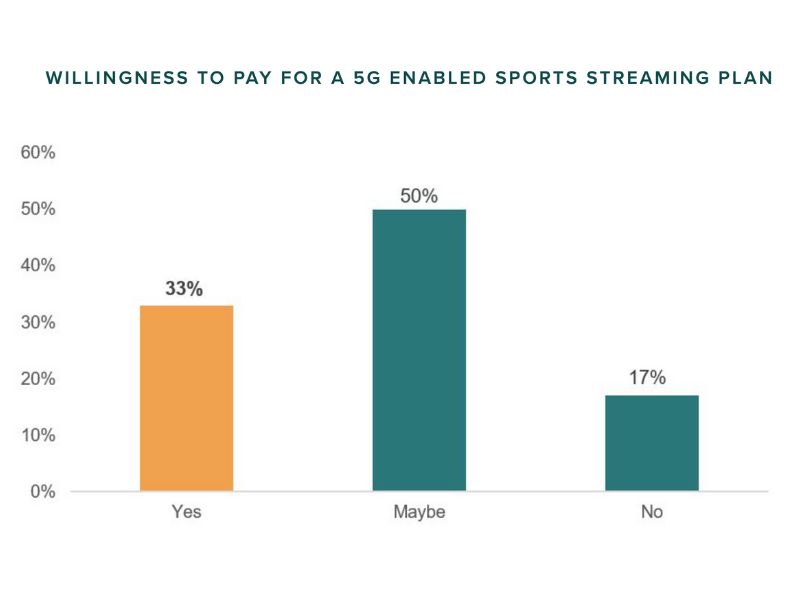
Smart Stadiums
jam-packed stadiums often pose a challenge for mobile internet connectivity. Even if the spectators manage (somehow) to access the internet the speed is disappointing, to avoid using objectionable adjectives. For stadiums that are equipped with WiFi networks, the upper limit for data usage might spoil the party. For instance, back in 2016, Super Bowl fans used 10 TB of WiFi data in Levi’s stadium. While such gargantuan data consumption is untenable for 4G bandwidths without encountering lag, and sometimes for the WiFi, 5G would face no such data ceiling issues, at least not at the minuscule scale that the current hardware faces.
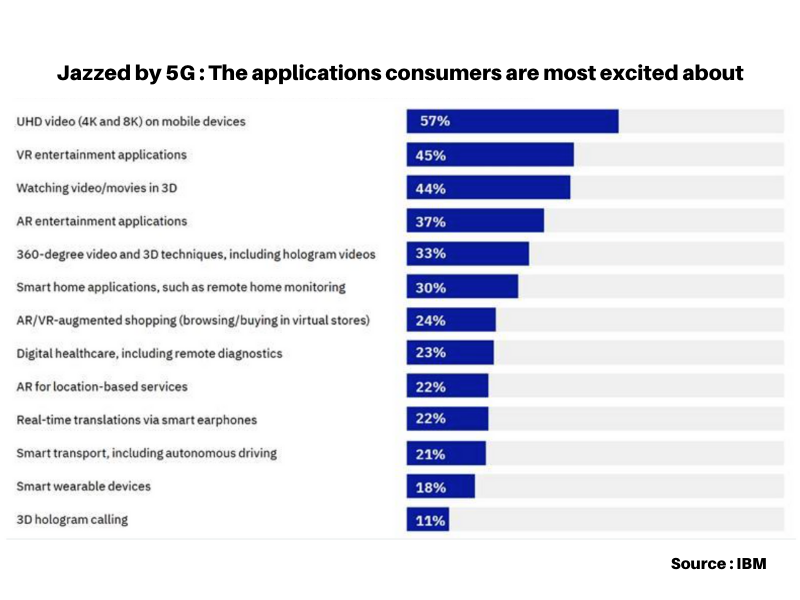
User Engagement
While home-seated viewers love the intervening sports analysis shows for insights, in-stadium fans have not much to do except using the occasion to freshen up. Domain experts predict all that will change when the 5G network edge is imparted to the stadiums. Low latency would ensure that data collection and transmission happens in real-time and that the same is transmitted to those in the arena. Fans would acquire the mental satisfaction of being able to see the broader picture at an unprecedented level of detail. For those attending the match from their couch, VR headsets would make panoramic digital views almost indistinguishable from reality.
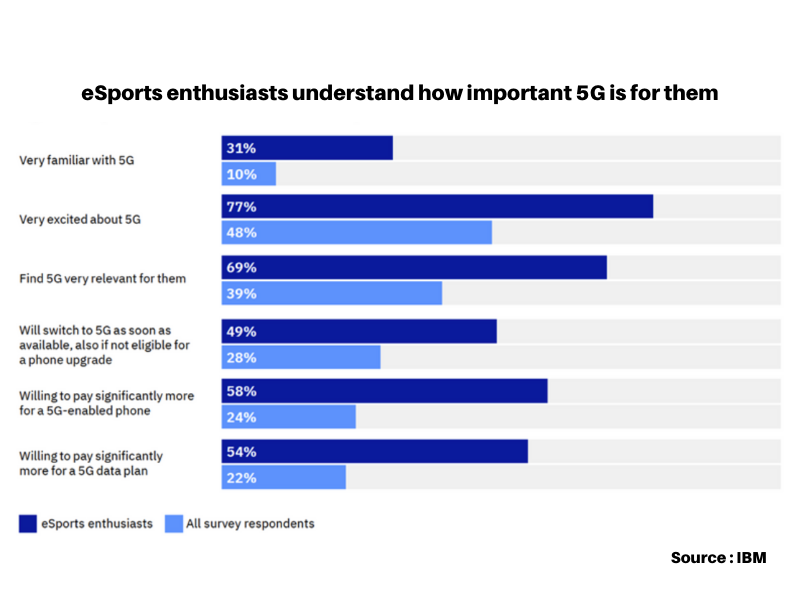
Remote Coaching
Players aren’t born but trained and with 5G, sports training will garb a new avatar with real-time remote caching. Already, holographic calls have been proven doable. With sensor-tracked wearables, data can be used by topline coaches situated in further reaches of the globe to counsel trainees virtually. This might bring down the cost of training as staff accommodation and flight travel for the training entourage can be avoided altogether. Under-developed regions with promising athletic human capital could get access to quality guidance and mentors, something that is still missing in the competitive world of sports.
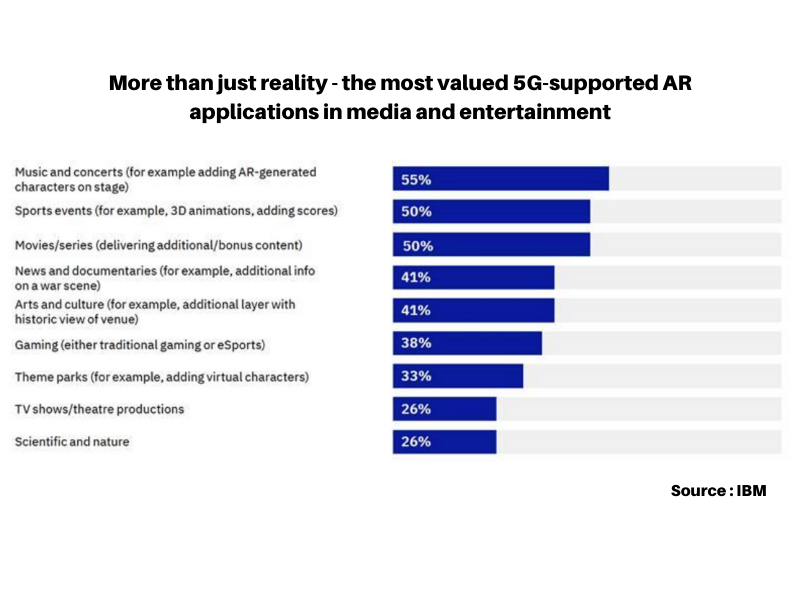
Upgrading Athlete Performance
As the distributed network edge moves closer to local data centres, data processing will fasten to manufacturer real-time analytics. Applying readily available information to sports as it happens will be a game-changer, literally. Tactics that greatly relied on the coaching staff identifying play-patterns can be deciphered through algorithms to turn the odds of winning. And there’s no telling if the tacticians can make this much out to adjust strategies, wouldn’t the betting market where billions are made in the blink of an eye.

Accurate Officiating
High-octane outdoor sports like soccer, tennis, basketball, and cricket can come down to the finest of margins. Although there is concerted effort to introduce and functionalize technology as part and parcel of sports, seldom controversy gets the better of it. As talks fan the flames for a harmonious unity between 5G, IoT, and AI outcome-deciding decisions could be made instantly with more consistency and less public outcry. It is not beyond the realms of possibility to see smart footballs studded with sensors, someday. The same shall be capable of indicating an off-side instantly or identifying the player to first touch the ball.
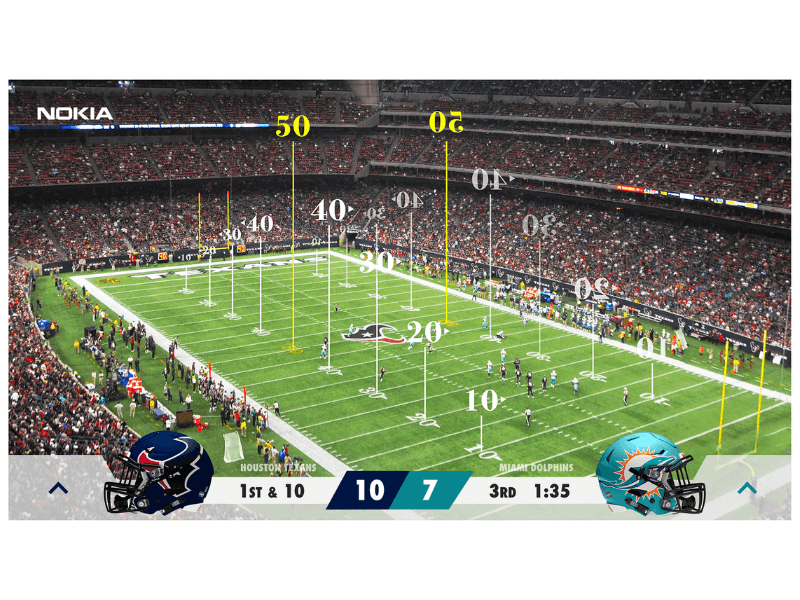
Conclusion
The Nokia Bell Labs End-to-End 5G Certification Programme is one of the elusive digital credentialing programmes that cultivate a 5G conceptual understanding aligned with the latest the field has to offer. Students undergoing its rigorous curriculum can be sure to acquire project-level expertise to drive 5G operations at full speed. Explore it now to book a place in the future of emerging technologies.
5G Certification Programme by Nokia Bell Labs and NIIT
Be a Pioneer and lead the 5G Revolution. Join the 5G Foundation Certification Programme offered by Nokia Bell Labs and NIIT, and guide businesses into the new world of next generation wireless technology
Nokia Bell Labs’ Global Certification
State-of-the-art Curriculum







